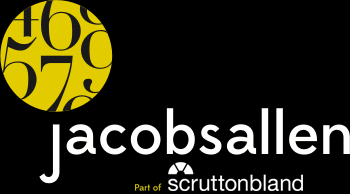Coronavirus Business Interruption Loan Scheme

7th April 2020 (Information correct at the time of publication)
The Coronavirus Business Interruption Loan Scheme (CBILS) was launched in response to the Coronavirus outbreak and went live on 23 March 2020. It will continue for 6 months.
The scheme is designed to give confidence to commercial lenders in providing finance to businesses by giving Government backed security for 80% of the finance. In other words, if the business defaults on the loan, the lender will be able to recover 80% of the loan from the Government. The Government will also pay the first 12 months interest and fees, with the business liable after that.
It is important to note that the Government is not providing a loan or other finance under the scheme. The business is liable to repay the finance facility in full to the commercial lender.
The scheme is available to smaller businesses (SME) including companies, sole traders and partnerships, which:
- Are UK based
- Have an annual turnover of no more than £45m
- Have a sound borrowing proposal which the lender would consider viable were it not for the current pandemic
- Self certify that it has been adversely affected by COVID-19
Finance of up to £5m can be provided under a number of options including term loans and asset finance facilities (up to 6 years), overdrafts and invoice finance facilities (up to 3 years).
To take advantage of the scheme the business must apply to a lender, normally their own bank or other provider, who will assess whether they are prepared to provide the finance.
Depending on the lender the business is likely to be asked to provide evidence to show that it can afford to repay the loan, which could include a Cashflow forecast, business plan and management accounts for example. It is therefore important for any business to take action now and get these resources ready to demonstrate its economic viability. Given the uncertainty that exists as to future trading activity, it makes sense for most businesses to consider this as a route to ride out the disruption caused by the current crisis. The lender must be convinced that the borrowing will help the business trade out of the current situation and remain in business in the long term.
Funding will not be granted to prop up an already failing business. This is a very important condition and means that businesses would be wise to discuss their applications with both their preferred lender and their Chartered Accountant or qualified business adviser. It is critical to be aware that the business as borrower is 100% responsible for repaying the loan, so must be able to demonstrate its ability to do so.
Following criticism that lenders were not allowing enough affected businesses to access the scheme, the Government announced on 3 April that from 6 April 2020:
- Lenders are banned from requesting personal guarantees for loans of less than £250,000. Personal guarantees may still be required at the lender’s discretion for facilities above £250,000, capped at 20%, but they exclude the Principal Private Residence.
- Lenders will not charge a fee to borrowers but themselves pay a fee to be part of the scheme, having their lending charges and interest covered for the first 12 months by the Government.
- To qualify for the scheme businesses initially were required to have first applied and been rejected for a commercial loan, which meant that those with acceptable security of their own could not access the scheme. This requirement has been dropped.
Businesses from any sector can apply, except for banks, insurers, public sector bodies, certain education establishments and membership organisations. Fishery, agriculture and aquaculture businesses may not qualify for the full interest and fee payment.
Full details of the scheme and a list of accredited lenders are on the British Business Bank website.

